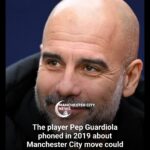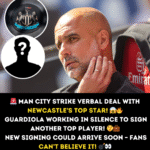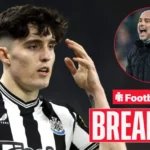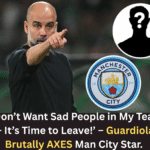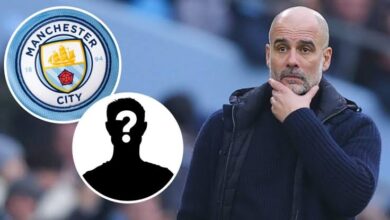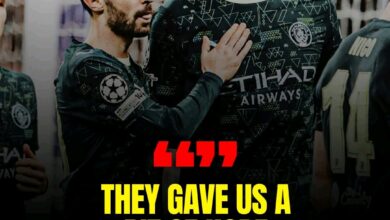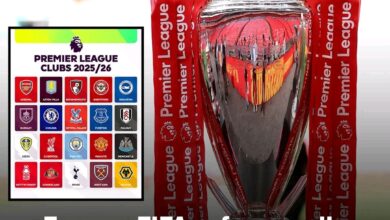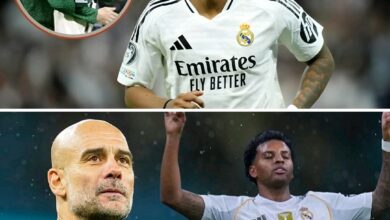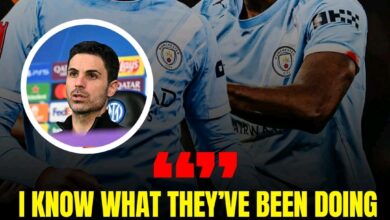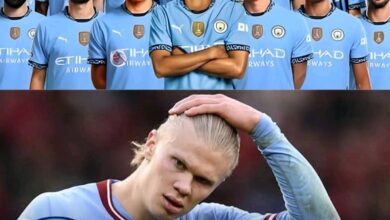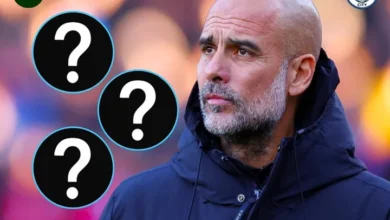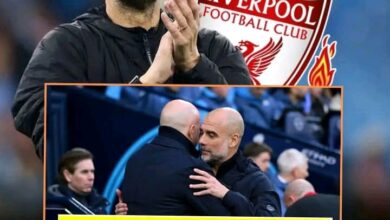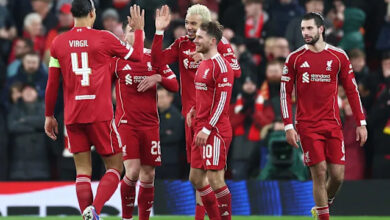Man City “Have Made Inquiries” About Signing La Liga Defender As Club Eye Livramento Alternative
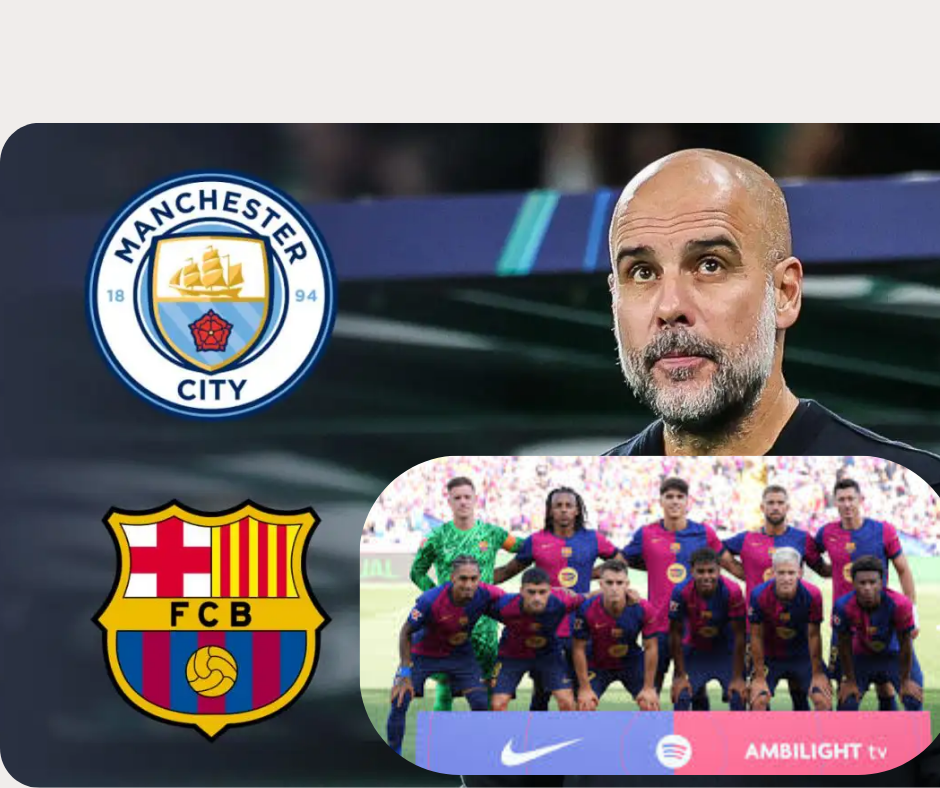
Jules Kounde’s path to becoming one of Europe’s most sought-after defenders began at Sevilla, where he established himself as a formidable centre-back before making his €50 million move to Barcelona three years ago. The transfer represented a significant investment by the Catalan giants, who saw in Kounde a player capable of fitting into their possession-based system while providing the defensive solidity they had been lacking.
Since arriving at the Camp Nou, Kounde has undergone a tactical transformation that speaks to both his adaptability and Barcelona’s evolving defensive strategy. While he was primarily deployed as a centre-back during his time in Seville, his role at Barcelona has been markedly different, with the club utilizing his pace, technical ability, and defensive awareness in a more advanced position.
## Tactical Evolution Under Hansi Flick
Under the guidance of head coach Hansi Flick, Kounde has been exclusively deployed as a right-back, featuring in all 54 of his appearances last season in this position. This tactical adjustment has proven highly successful, with Kounde adapting seamlessly to the demands of playing as a fullback in Barcelona’s system.
Flick’s decision to utilize Kounde in this role reflects modern football’s emphasis on fullbacks who can contribute significantly in both defensive and attacking phases. The French defender’s pace allows him to track back quickly when needed, while his centre-back background provides him with excellent positioning and aerial ability. Going forward, his technical skills and crossing ability have added a new dimension to Barcelona’s attacking play down the right flank.
This positional flexibility has not gone unnoticed by elite clubs across Europe. In today’s tactical landscape, players who can operate effectively in multiple positions are increasingly valuable, as they provide coaches with greater strategic options and squad depth without requiring additional signings.
Pep Guardiola’s interest in Kounde aligns perfectly with his tactical philosophy and preference for versatile players. Throughout his tenure at Manchester City, Guardiola has consistently sought defenders who can adapt to different roles and contribute to his team’s possession-based approach. The Spanish coach has previously converted midfielders into defenders and fullbacks into centre-backs, demonstrating his belief in tactical flexibility.
Kounde’s ability to play both centre-back and right-back would provide Guardiola with numerous tactical options. In City’s system, fullbacks are often required to invert into midfield during possession phases, a role that would suit Kounde’s skill set perfectly given his centre-back background and comfort in central areas. Additionally, his pace and defensive awareness would allow him to operate effectively in City’s high defensive line.
The timing of City’s interest is also significant. With questions surrounding the long-term futures of some of their defensive players and the ongoing need to refresh their squad, adding a player of Kounde’s caliber and versatility would represent excellent business. His age profile also fits City’s current strategy of targeting players who can contribute immediately while still having several years of peak performance ahead of them.
Despite the interest from Manchester City and other elite clubs, Barcelona’s position regarding Kounde appears to be firm. Reports suggest that the Catalan club has no intention of selling their versatile defender, viewing him as an integral part of their long-term plans. This stance is reinforced by ongoing discussions about a contract extension, which would further cement Kounde’s future at the Camp Nou.
Barcelona’s reluctance to sell is understandable given Kounde’s importance to their tactical setup and his consistent performances since joining the club. His adaptation to the right-back role has solved a long-standing positional issue for the club, and his versatility provides valuable squad depth across the defensive line.
The contract negotiations currently taking place represent Barcelona’s commitment to retaining their key players and building for the future. A new deal would likely include improved terms that reflect Kounde’s importance to the team and his development since joining the club
Kounde’s situation must be viewed within the broader context of the current transfer market, where versatile defenders command premium prices. The modern game’s tactical demands have created a shortage of players capable of excelling in multiple positions, driving up the value of those who possess such attributes.
Manchester City’s interest in Kounde also reflects their ongoing evolution under Guardiola. The club has consistently invested in players who can contribute to their tactical system, and Kounde’s profile fits perfectly with their recruitment strategy. His technical ability, pace, and tactical intelligence make him an ideal candidate for Guardiola’s system.
The competition from “another top-tier club” mentioned in the reports adds another layer of complexity to any potential transfer. This competition could force Manchester City to act quickly if they are serious about securing Kounde’s services, potentially leading to an increased offer that might test Barcelona’s resolve.
Any potential transfer for Kounde would involve significant financial considerations for all parties involved. Barcelona’s investment in the player three years ago means they would expect to recoup a substantial portion of that fee, while Manchester City would need to factor in not just the transfer fee but also wages and associated costs.
The financial fair play regulations that govern European football also play a role in such high-profile transfers. Both clubs would need to ensure that any deal complies with these regulations, potentially affecting the structure and timing of any potential agreement.
Barcelona’s current financial situation, while improved from previous years, still requires careful management of their squad and transfer activities. The decision to retain or sell key players like Kounde involves balancing sporting ambitions with financial realities.
Should Kounde eventually move to Manchester City, the impact would be felt at both clubs. For Barcelona, losing such a versatile and reliable defender would create a significant gap in their squad, requiring them to identify and secure a suitable replacement. His departure would also necessitate tactical adjustments, particularly given his unique role in Flick’s system.
For Manchester City, Kounde’s arrival would provide immediate tactical options and squad depth. His ability to play multiple positions would give Guardiola greater flexibility in team selection and tactical approach, potentially proving decisive in crucial matches across multiple competitions.
The ripple effects of such a transfer would extend beyond the immediate tactical implications. Squad chemistry, leadership dynamics, and overall team balance would all be factors that both clubs would need to consider carefully.
The interest in Kounde reflects broader trends in modern football transfer strategy. Clubs are increasingly prioritizing versatile players who can contribute in multiple roles, recognizing the tactical and financial benefits such players provide. This trend is likely to continue as the game becomes increasingly tactical and coaches seek maximum flexibility from their squads.
For Kounde personally, the interest from Manchester City represents validation of his successful adaptation to playing at right-back. His evolution from a centre-back at Sevilla to a fullback at Barcelona demonstrates the kind of tactical intelligence and adaptability that elite clubs value most highly.
While Manchester City’s interest in Jules Kounde appears genuine based on credible reporting, the likelihood of a transfer materializing remains uncertain given Barcelona’s apparent reluctance to sell and their ongoing contract negotiations with the player. However, the situation bears monitoring as the transfer window progresses and circumstances potentially change.
Kounde’s case exemplifies the modern football landscape, where tactical versatility commands premium value and elite clubs compete fiercely for players who can provide multiple solutions. Whether he remains at Barcelona or moves to Manchester City, his continued development and adaptation to different tactical roles will undoubtedly be watched closely by football observers worldwide.
The coming weeks and months will reveal whether Manchester City’s inquiries develop into concrete action, or whether Kounde’s future remains firmly tied to Barcelona’s long-term plans. Regardless of the outcome, this transfer saga highlights the ongoing evolution of football tactics and the premium placed on adaptable, intelligent players in the modern game.

